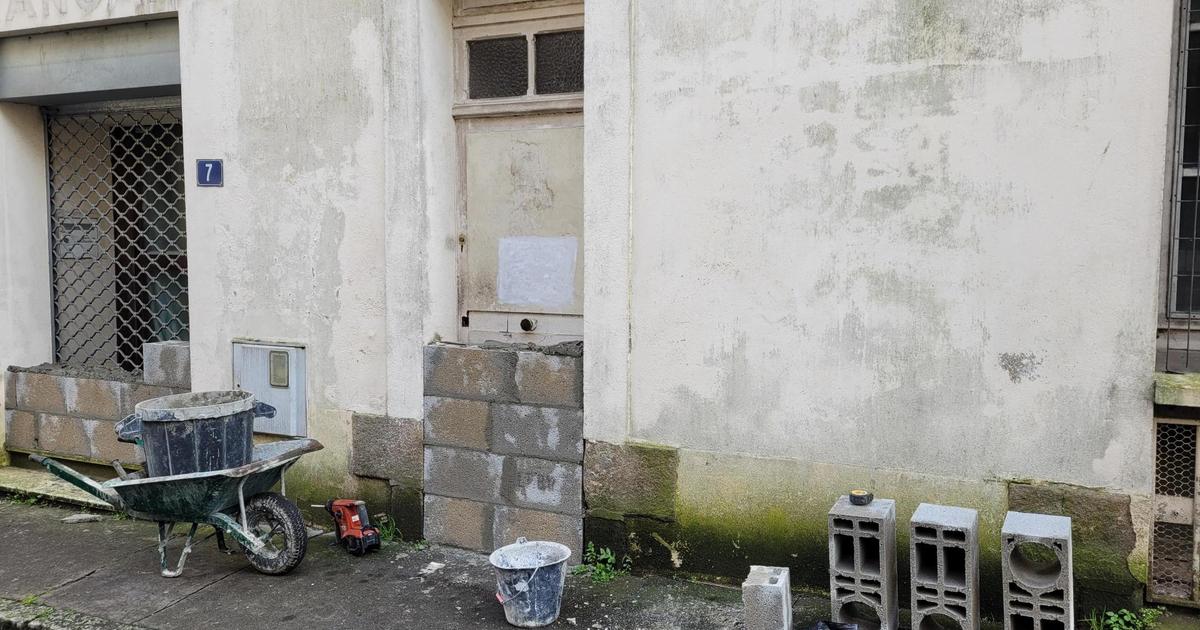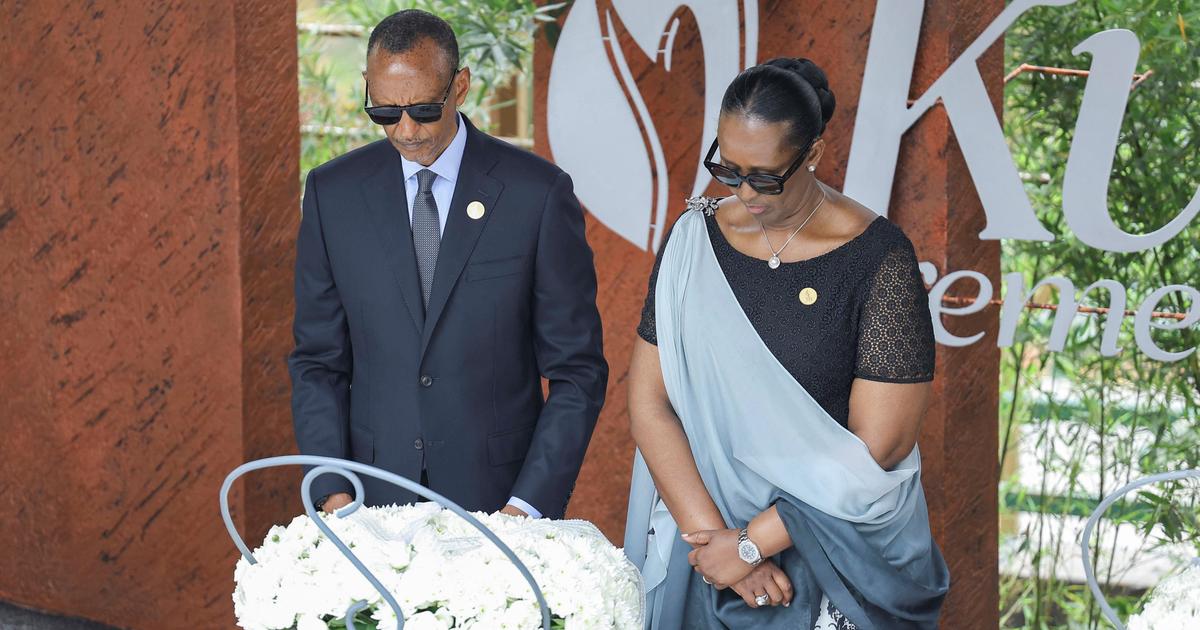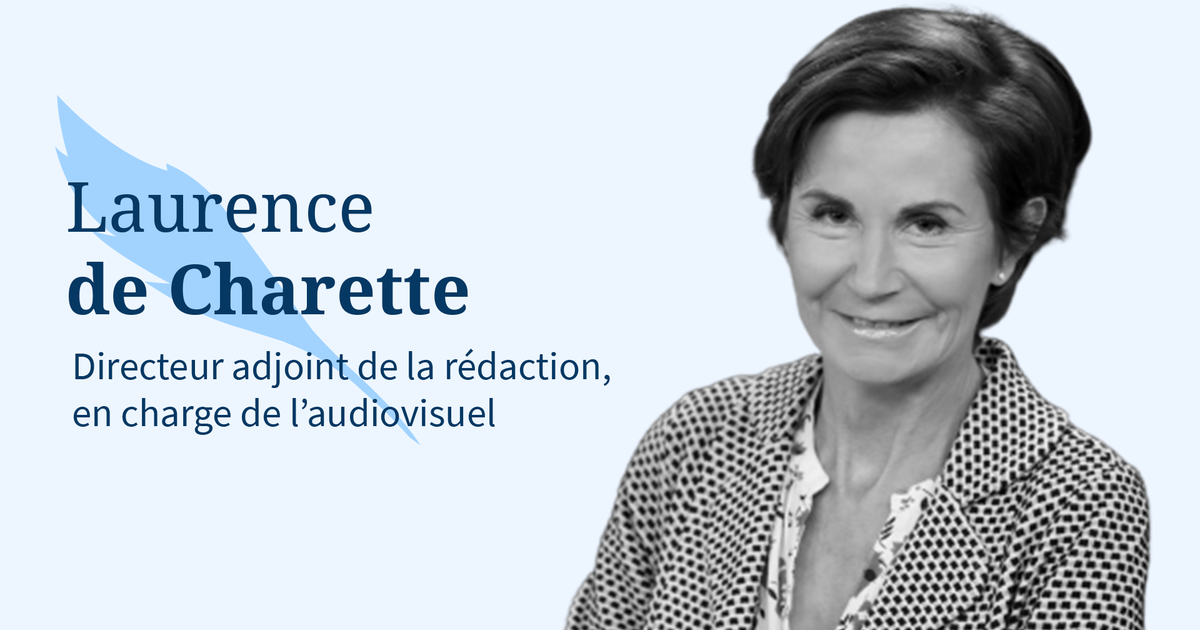There is no provision for improvisation
His last joint appearance with yet-Health Minister
Jens Spahn
used
Lothar Wieler
, president of the Robert Koch Institute, to once again take seriously a powerful reminder of the dramatic Corona Location:
"We have no time to lose a single day."
The man is right, of course.
But unfortunately Germany keeps losing time in the fight against Corona, politics always shuffles after the infection process.
Why is that like that?
Why even now, when hundreds die every day, when the clinics are preparing for triage?
Enlarge image
Jens Spahn, Lothar Wieler
Photo: ANNEGRET HILSE / REUTERS
My colleague Ullrich Fichtner pursues these questions in the new SPIEGEL.
"In the course of the pandemic so far, German politics has been dominated by a queasiness, or was it even a kind of
cowardice in front of the people
that did not limit the damage, but only worsened it?" He writes in his very readable essay.
For a long time, the actions of politics, Ullrich notes, stood in marked contrast to their speeches. How often have the Chancellor and her Minister of Health and Prime Ministers announced that they are now really determined to fight the virus and that they do not want to allow the second, third and fourth waves.
“But what has happened in view of the biggest health crisis in 100 years: not much. And often the wrong thing in the little. And in the wrong there is an incredible amount of contradiction, confusion, yes: shocking. "
Now the fourth wave is here, higher and more threatening than any previous wave.
And politics acted, once again much too late, but at least.
Even the compulsory vaccination, which everyone from Angela Merkel to Olaf Scholz to Christian Lindner have categorically ruled out, should come now.
Until then, the unvaccinated should be practically excluded from public life.
You could say that it is brave.
But the acute danger remains.
Every day counts.
And the fact that the notorious Prime Minister's Conference has adopted measures does not mean that they apply immediately.
The Infection Protection Act still has to be changed, it has to be passed by the Bundestag and Bundesrat, and the states have to include other rules in their ordinances.
And so it happens, for example, that this weekend Bundesliga games sometimes take place in front of a ghost backdrop (stricter than decided), sometimes in front of a maximum of 15,000 spectators (as decided), but also in front of more than 20,000 (decision not yet implemented). In view of the drama of the situation, one could come up with the idea of implementing a rule that one knows is coming, but that is not yet legally binding. But, writes Ullrich:
"Improvisation is simply not planned, acting quickly in the now, without thinking of the legal consequences tomorrow, is practically forbidden."
It almost seems as if the RKI president had given up too.
As if he only had the slightest hope that with a new government something would change in the comfort, in the cowardice in front of the people.
He was asked yesterday whether he would miss Jens Spahn.
"I don't know," said Lothar Wieler and shrugged his shoulders.
"We'll see.
You only know what you're missing when you no longer have it. "
Policy Failure In The Pandemic: Cowardice Before The People
Yes to the traffic light
The strange transition phase between the old and the new federal government is coming to an end.
Before the Bundestag
elects
Olaf Scholz as the new Chancellor next week
, the future traffic light partners have to approve the coalition agreement
.
The survey of the 125,000 Greens members ends on Monday, the FDP party congress meets digitally on Sunday, and the Social Democrats are already meeting today for a virtual federal meeting.
A yes to the traffic light pact should always be a matter of form.
Enlarge image
Olaf Scholz
Photo: FILIP SINGER / POOL / EPA
The schedule for this Saturday shows
that Olaf Scholz does not really expect much resistance from his comrades
. A mere two and a half hours are scheduled for the party congress. If you deduct the speeches of the two chairmen Saskia Esken and Norbert Walter-Borjans and the chancellor-designate, there is not much time for the planned debate. However, the Jusos have recently shown that some still have something to complain about, even after years of infirmity and sensational recapture of the Chancellery.
It cannot be ruled out that one or the other delegate may ask carefully who Scholz
would like to
appoint to the various
ministerial
offices. There is, for example, the not entirely unimportant
health department
that the SPD is allowed to occupy. And there is this very well-known specialist in the Social Democratic parliamentary group who would dare to do the job.
But Scholz is likely to be stubborn on Sunday and not comment on the future of Karl Lauterbach and all other possible ministerial candidates.
The cabinet personnel, that remains the plan, should not be officially announced until Monday.
If the plan works, Scholz will be very proud of it.
Whether it is necessary in the case of the Ministry of Health to artificially keep the tension high at these times is another question.
Stricter corona measures: is Scholz breaking the fourth wave - or is the wave breaking him?
The CDU members have the floor
This Saturday is
a historic day for the CDU
.
For the first time in its history, the party asks its members who should be the new chairman.
Up until December 16, around 400,000 Germans with a Christian Democratic party book can vote online or by letter on Armin Laschet's successor.
Enlarge image
Merz, Röttgen, Braun
Photo: Michael Kappeler / dpa
Here is an overview of the candidates again:
Friedrich Merz
, 66, in 1989 for the first time in the European Parliament, in 1994 in the Bundestag, from 2000 to 2002 already head of the CDU / CSU parliamentary group, failed twice when trying to become chairman
Norbert Röttgen
, 56, in the Bundestag since 1994, dishonorably dismissed as Federal Environment Minister by Chancellor Angela Merkel in 2012, failed once when trying to become chairman
Helge Braun
, 49, in the Bundestag since 2002, in the Federal Chancellery since the end of 2013, first as Minister of State, from 2018 as Head of the Chancellery
Do you feel the departure, the new start?
How will a fresh CDU with unused leadership soon disenchant the traffic lights?
Maybe still to come.
In a few years.
CDU triumph for the chairmanship: fight with clichés
Right of center
It used to be a matter of course for a conservative president to rule France.
It's different today.
In 2017, the Republican candidate, ex-Prime Minister François Fillon, did not even make it to the runoff election.
And even now that the parties are sorting out for the presidential election next year, things are not looking good for the bourgeoisie.
Enlarge image
Valérie Pécresse
Photo: POOL / REUTERS
This Saturday, the
Republicans
want
to announce after their internal primary who should start for them.
The favorite is now surprisingly the regional
president of
the greater Paris area, Valérie Pécresse
, after the two candidates who lost out in the first round, the former EU commissioner and Brexit representative Michel Barnier and ex-minister Xavier Bertrand, for their support in the second round of the 140,000 Members have called. Originally, Bertrand was considered the most promising candidate, now Pécresse has to prevail against the nationalist Eric Ciotti.
But does that even matter?
As of now, the Conservative candidate is likely to have no chance next year - even though the election will probably be decided on the right of the center.
The Republicans, however, are being crushed between the incumbent President Emmanuel Macron, the middle man who will probably run again, and the right-wing extremists
Marine Le Pen
and
Éric Zemmour
.
In addition to Zemmour, Marine Le Pen looks surprisingly serious.
Zemmour, 63, the son of French Jews from Algeria and a controversial talk show host, is a
convicted racist, Islamophobia, conspiracy ideologist, sexist, apocalyptic
- and yet, according to surveys, many of his crude theses are met with great approval.
Enlarge image
Eric Zemmour
Photo: THOMAS COEX / AFP
The shift to the right, which France has been experiencing for years, wants to take advantage of the political lateral entrant on the way to the Elysée Palace.
Admittedly, thanks to the two-stage electoral process, this is a long way to go.
But how can it be that a man like Zemmour meets sympathy in the bourgeois and right-wing conservative camp at all?
What does that say about the mood in the country?
Our Paris correspondent Britta Sandberg went on a search for clues in the new SPIEGEL and explains the phenomenon to Éric Zemmour:
Far-right presidential candidate Zemmour: Why is an Islam hater, sexist and apocalyptic so popular in France?
The latest news from the night
The seven-day incidence rose again slightly:
The Robert Koch Institute gave the number of new corona infections per 100,000 inhabitants and week on Saturday morning at 442.7.
The health authorities reported 64,510 new infections.
Traffic light wants to enable restaurants to be closed:
The new version of the Infection Protection Act could include the option for a lockdown of restaurants, according to a media report.
New corona infections in South Africa are skyrocketing
:
within a week, the number of new corona cases in South Africa has more than quintupled, and a total of more than three million people have now been infected in the country.
The main reason is likely to be the Omikron variant.
Magnus Carlsen gets his first victory in a record match at the World Chess Championship:
after 136 moves and almost eight hours of play, Jan Nepomnjashchi surrendered to Magnus Carlsen.
It was the longest chess match at a world championship so far.
The SPIEGEL + recommendations for today
Bioinformaticians about the omicron mutant: "I hope for a cuddly cat - and fear a monster tiger"
Pisa boss on school and Corona: which country should Germany's role model be, Ms. Lewalter?
Couples therapist Oskar Holzberg on three-way relationships: What the traffic light coalitioners have to pay attention to
A train driver's escape from the GDR: Full steam ahead from the dictatorship
DFB presidential candidate Peters: Confused and lengthy lectures, then dead silence
Writing more beautifully: Mariana Leky - What you can see from here
I wish you a wonderful weekend.
Heartfelt,
Your Philipp Wittrock









